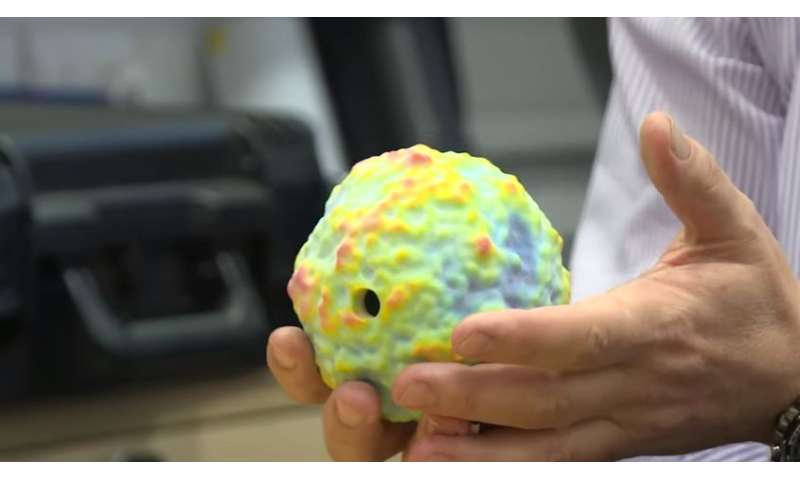Best of Last Week–Printing baby universe, releasing mutant mosquitoes and a simple supplement that reduces heart disease

(ScienceX)—It was another good week for physics as a French-led team at the National Superconducting Cyclotron Laboratory at Michigan State University announced that a bubble nucleus was discovered—prior research had suggested that the protons in a silicon-34 nucleus had a bubble-shaped center, and now it has been proved. Also, a team with UCL published two papers looking into the question of how often quantum systems violate the second law of thermodynamics—they calculated the likelihood. And another team of physicists at Imperial College London made it possible to 3-D print your own baby universe by creating the blueprint for printing the cosmic microwave background. It is available online.
In other news, a team with the University of Reading and Bristol made headlines by announcing that they had found that flawed analysis techniques cast doubt on years of evolutionary research—a serious flaw in the way fossil data has been analyzed may have led to mistakes regarding diversity. Also, authorities have given the green light for Brazil mutant mosquitoes to breed out diseases—created by British company Oxitec, millions of the mosquitoes will be released in the hope that they will outbreed cousins that carry diseases. And an Israel firm announced it wanted its super-efficient engine to power a car revolution—Aquarius Engines suggested their new engine could reduce fuel consumption drastically. It was announced that a new gene-editing technology successfully cured a genetic blood disorder in mice—developed at Yale and Carnegie Mellon Universities, it can be used on living organisms. Also, a team at the Buck Institute found a new look at vitamin D challenged the current view of its benefits—they found it extended the lifespan of nematode worms by slowing the aging process. And UC Berkeley's 'Breakthrough Listen' project to search for intelligent life around weird star—more specifically, Tabby's Star—the one that has researchers puzzled over its unique behavior.
And finally, if you are like millions of others worried about your heath as you grow older, you might want to check out a study done by a team at the University of Reading, they found that a protein supplement may cut the risk of heart disease and stroke—a whey protein supplement demonstrated an ability to reduce both by approximately 8 percent.
© 2016 ScienceX